MercoPress. South Atlantic News Agency
Tag: Fukushima plant
-
Saturday, November 24th 2012 - 21:59 UTC
Why the Qatar Summit could bring new direction for action on climate change

By Lord Hunt & Terry Townshend - We have learnt to expect surprises at UN climate change summits. At Durban, a year ago, there was the unexpected, but welcome, agreement to begin negotiations on a new legally binding instrument involving all major emitters of greenhouse gases, to be finalised by 2015, and to take effect in 2020.
-
Tuesday, August 28th 2012 - 04:13 UTC
Despite Fukushima accident, 30 countries considering nuclear energy says IAEA

Almost 30 countries are considering or planning to introduce nuclear energy as interest remains strong despite last year's Fukushima accident, the United Nations' atomic agency said.
-
Saturday, July 7th 2012 - 01:11 UTC
“Collusion” much to do with Japan’s Fukushima nuclear crisis, says expert panel
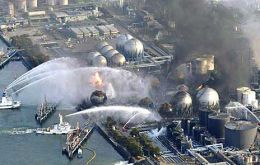
Japan's Fukushima nuclear crisis was a preventable disaster resulting from “collusion” among the government, regulators and the plant operator, an expert panel said, wrapping up an inquiry into the worst nuclear accident in 25 years.
-
Monday, March 12th 2012 - 22:10 UTC
One year after Fukushima, time for a more mature debate on nuclear

Since Fukushima, important developments have taken place. Germany has decided to shut down its fission plants. Moreover, in a referendum, 95% of the Italian public opposed plans to restart a nuclear programme in the country.
-
Tuesday, March 22nd 2011 - 08:32 UTC
Fukushima nuclear plant seems ‘stabilized’ but smoke emissions continue
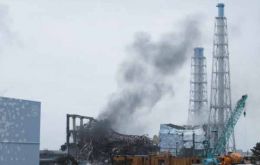
Efforts have resumed at Japan's Fukushima Daiichi nuclear power plant to restore electrical power and cool its overheated reactors, seriously damaged by the 11 March earthquake.
-
Monday, March 21st 2011 - 06:51 UTC
IAEA says Japan’s nuclear emergency remains very serious; death and missing toll reaches 21.000

The United Nations nuclear agency, IAEA, says there have been positive developments in Japan's efforts to tackle a nuclear emergency after the 11 February quake.
-
Friday, March 18th 2011 - 03:29 UTC
If power is restored and if pumps work Fukushima reactor could be cooled
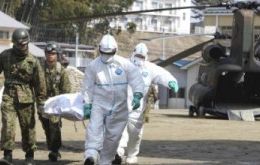
Engineers at Japan's stricken Fukushima nuclear power plant have managed to lay a cable to reactor 2, the UN's nuclear watchdog reports. Restoring power should enable engineers to restart the pumps which send coolant over the reactor.
-
Wednesday, March 16th 2011 - 23:25 UTC
Wikileads cables reveal Japan was warned about poor safety at nuclear plants
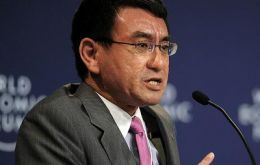
As concerns about a meltdown at the Fukushima plant escalate, Britain’s the Telegraph revealed a series of two-year-old cables the paper obtained from Wikileaks that show unnamed experts telling Japanese officials they needed to update their nuclear safety protocols.
-
Wednesday, March 16th 2011 - 15:05 UTC
WHO: radiation risk in Japan limited to area next to damaged nuclear plant
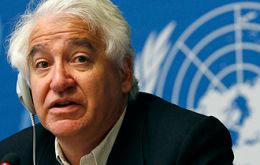
The risk of the contamination of food products from nuclear radiation in Japan is limited to the specific area surrounding the damaged nuclear plant, according to a source from the World Health Organization (WHO).
